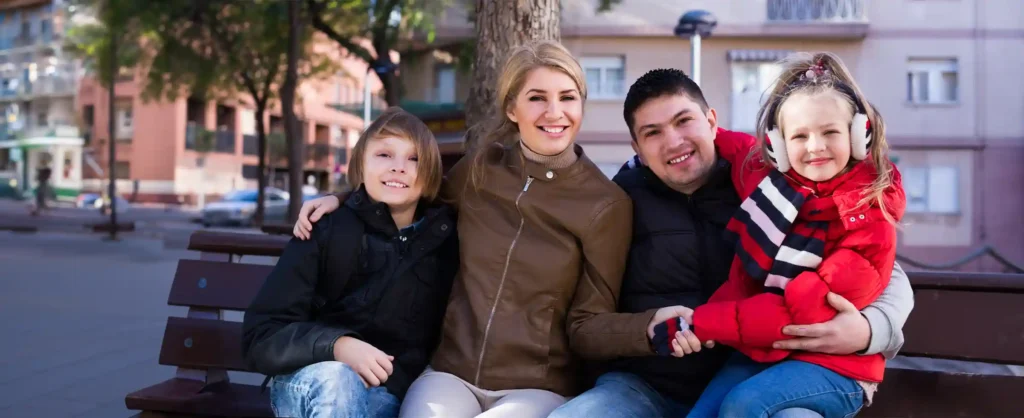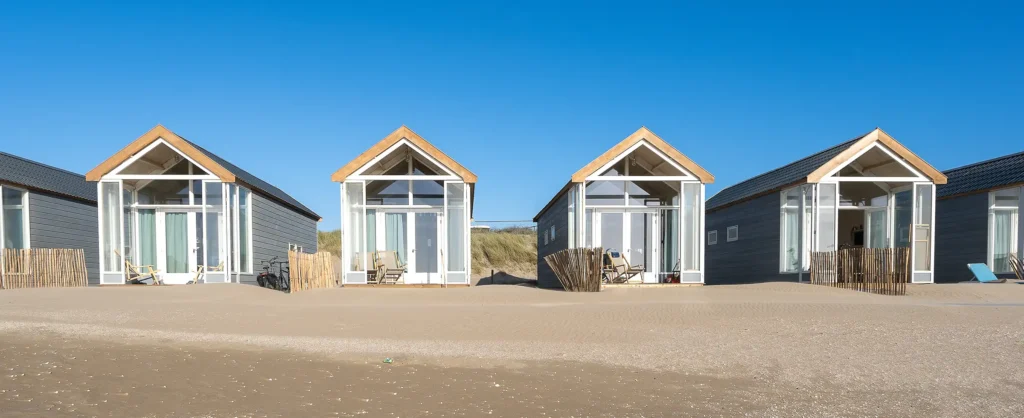As a traditionally marginalised group, the LGBTQ+ community has often been on the receiving end of discrimination and social biases. Whereas certain discriminatory practices may be more mainstream, one overlooked area in which members of the LGBTQ+ community have struggled is in finding secure and stable housing.
A 2023 report by the youth-oriented LGBTQ+ charity AKT showed that, in the UK alone, over 24% of young people experiencing homelessness identify as being LGBTQ+. Of this number, 69% were highly likely to have experienced familial rejection, abuse and violence leading up to their homelessness. Additional insights from the report include:
- 84% of LGBTQ+ organisations had experience of users disclosing homelessness, homelessness risk or hostile living conditions.
- 74% of young people believed their sexual/gender identity was a factor in their rejection from home.
- Only 13% of housing providers recognised the unique needs of LGBTQ+ youth in securing housing.
- 30% of social housing agencies fail to monitor sexual orientation or gender identity in finding shelter or accommodation for homeless youth.
These findings not only suggest that LGBTQ+ homelessness is an ongoing problem the community struggles with, but also that the underlying causes behind LGBTQ+ homelessness and the ways in which it should be addressed may be poorly understood by providers of social and affordable housing.
As a company that partially specialises in supplying vulnerable groups with affordable and secure modular housing, Concept Capital Group is committed to spreading awareness about how those groups navigate the existing housing market and what can be done to create a better experience for everyone involved. That’s why we’ve put together three simple steps property investors and social housing associations can take to support homeless members of the LGTBQ+ community this Pride Month.
1. Show Vocal Support for LGBTQ+ Tenants
When supporting marginalised groups, creating vocal and accessible safe spaces is key to encouraging them to come forward to seek the help they need.
AKT reported that homeless LGBTQ+ young people were less likely to seek help or support than their non-LGBTQ+ counterparts. When they did, a limited understanding of the unique experiences and challenges of LGBTQ+ homeless and an assumption of heterosexuality by service providers discouraged them from ‘coming out’ and pursuing further support.
While it can be argued that these obstacles are more related to mainstream ideas of sexual identity than service providers themselves, a survey by Scotland’s LGBTQ+ Youth Commission on Housing and Homelessness found inconsistent levels of LGBTQ+ awareness training among professionals, with most having no training at all and rating their confidence in supporting LGBTQ+ homeless youth as low. This is further supported by a 2022 AKT report on Building Inclusive Housing Support for LGBTQ+ Communities that revealed only 15% of housing organisations surveyed by the charity tailored their communications to reach LGBTQ+ communities and 85% felt their data capture of gender identity was lacking.
For social housing associations and property investors drawing in more LGBTQ+ tenants, can be a matter of providing specialised training for members of staff, using social media channels to promote LGBTQ+ causes and providing opportunities for service users to share their sexual/gender identities outside of impersonal initial evaluations. By doing this, they can create an atmosphere of LGBTQ+ support that can better resonate with LGBTQ+ homeless young people and reassure them that their needs will be considered if and when they decide to seek support.
2. Stay up to Date on LGBTQ+ Policy and Initiatives
The state of LGBTQ+ policy is constantly shifting to match changing ideas and growing influence from the community itself. It may not seem as if these changes can impact the housing market at a glance, but the effect it may have on LGBTQ+ homelessness and attitudes towards it certainly will.
A 2022 report by the UK’s leading LGBTQ+ charity, Stonewall, for example examined the evolution of attitudes towards trans people in the UK in recent years while also providing an overview of how LGBTQ+ social policy has been shaped by those attitudes. Given that AKT’s report found that trans issues were specifically more under-researched than other LGBTQ+ issues, it stands to reason that as the trans community becomes more accepted by the mainstream that trans homeless young people may feel more comfortable about their role in social housing.
Stonewall was founded in 1989 to campaign against the controversial Section 28 legislation aimed at banning the ‘promotion’ of homosexuality in schools and stigmatising the LGBTQ+ community. Since its foundation, it has become a vocal campaigner for a wide range of LGBTQ+ causes, including LGBTQ+ homelessness.
By monitoring the activity of organisations like Stonewall and AKT, housing associations and property investors can develop a more thorough understanding of how LGBTQ+ homeless youth navigate the housing market and reshape their approaches to better accommodate them. It can also help to become more familiar with LGBTQ+ laws to avoid any risk of discrimination.
3. Develop and Buy Property in LGBTQ+ Friendly Communities
According to Stonewall, almost one in ten LGBTQ+ people in the UK do not feel safe in the area they live. Likewise, 29% of LGBTQ+ people avoid certain streets due to not feeling safe while walking down them. These figures suggest that housing communities that create safe spaces for members of the LGBTQ+ community could not only alleviate feelings of unease in potential tenants, but also address one of the more pressing concerns felt by LGBTQ+ homeless in the increased threat of violence and hate crimes.
Property investors and social housing associations may not always have the power to influence the way LGBTQ+ people are treated in certain communities, but investing or developing in areas that show a history of LGBTQ+ acceptance and presence could be an easy way to signal support to young LGBTQ+ homeless people. Individual market efforts to foster inclusive communities may carve thriving LGBTQ+ residential ‘safe spaces’ where the most vulnerable segments of the LGBTQ+ population will feel more comfortable seeking support and help with housing.
There may not be an absolute answer to the overrepresentation of LGBTQ+ young people in homelessness, but every step towards acknowledging and remedying the problem has the potential to positively impact the normalisation and awareness of LGBTQ+ obstacles to finding secure housing.
Fighting Homelessness with Concept Capital Group
Our commitment to providing homes to vulnerable groups includes sourcing pre-approved tenants based on protected qualities to ensure all our properties stay tenanted throughout the length of your contract for guaranteed monthly income.
Our innovative approach to affordable housing uses modular construction to create homes that blend efficiency with quality. We streamline the property development process by creating an all-inclusive experience where production, distribution, land placement, tenant sourcing and rent collection are all taken care of by our team of experts. This allows our investors to enjoy all the benefits of being a landlord with none of the bothersome responsibilities and the added bonus of knowing they’re supporting local communities.
To find out more about building a more modern property portfolio by providing for vulnerable groups like the LGBTQ+ homeless, contact us today for a free consultation.













